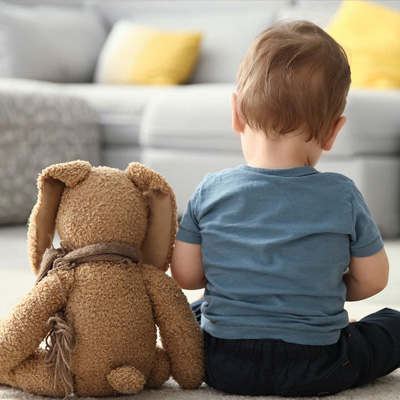Autism

– Treatment of Autism
– Homeopathic Treatment of Autism
The homoeopathic case evaluation of the child with autism includes the detail study of the family history. The case analysis also takes into account impaired functions in terms of behavior, social skills, communication, speech, tantrums, etc. The treatment may require to be continued for over one year, depending on the severity of the presentation. The medicines are essentially safe and absolutely non-toxic. Some common homeopathic medicines for autism are:
- Calc
- Agar
- Lyco
- Bar C
- Bufo
– Acupuncture & Acupressure Treatment of Autism
Autism is a baffling and difficult problem to treat, many parents are turning to alternative therapies to try and help their children. Children with autism can benefit from acupuncture. While a cure is not to be expected, acupuncture seems to give symptomatic relief to children.
– Psychotherapy and Hypnotherapy Treatment of Autism
Psychotherapy program of treatment for the autistic child should include parent participation and parent education, with the goal of reducing distortions in the parent-child relationship. Otherwise, treatment of the preschool autistic child should be concerned with establishing perceptual organization and cortical control over his sensory experiences.
– Conventional / Allopathic Treatment of Autism
Conventional treatment includes language and behavior therapy. Some physicians address the gastrointestinal problems these kids often exhibit, and many of them prescribe psychotropic drugs aimed at improving behavior and mood. Symptoms of autism spectrum disorder range from mild impairments in language, behavior, and/or social skills to near-complete social withdrawal and mental retardation in the most severe cases.
– Dietary & Herbal Treatment of Autism
- Add vitamin B and C supplements to your food
- Eat magnesium, and cod liver supplements
– Other Treatment of Autism
Yoga exercise and breathing techniques could prove to be very helpful for increasing the quality of life for children and adolescents with Autism. It reduces stress, anxiety, increasing body awareness, strength, and flexibility and increasing self-regulation.
– What is Autism
Autism is known as a complex developmental disability that begins at birth or within the first two-and-a-half years of life. People with autism have issues with non-verbal communication, a wide range of social interactions, and activities that include an element of play. Autism is a severe developmental disorder Most autistic children are perfectly normal in appearance, but spend their time engaged in puzzling and disturbing behaviors which are markedly different from those of typical children. Less severe cases may be diagnosed with Pervasive Developmental Disorder (PDD) or with Asperger’s Syndrome.
– Symptoms of Autism
- Display abnormal reactions to sensory stimuli.
- Individuals with autism do not develop enough natural speech to meet their daily communication needs.
- Touches may be experienced as painful, smells may be overwhelmingly unpleasant, and ordinary daily noises may be painful.
- Displays lack of interest in toys.
- Unusual eating behavior occurs in about three-quarters of children with Autism.
- Autism children have more sleep problems than those with other developmental disabilities.
- Appears content to be alone, happier to play alone.
- Does not point out objects of interest to others.
– Causes of Autism
- Genetic factors are responsible for some forms of autism.
- In families with one child with autism, the risk of having another child with autism is 3-8%.
- Environmental factors and exposures may interact with genetic factors to cause an increased risk of autism in some families.
- Abnormalities in brain structures cause autistic behavior
- The body’s immune system may inappropriately produce antibodies that attack the brains of children causing autism.
– Risk factors of Autism
Genetic Factors – Autism is common in families, in identical twins, in parents with psychiatric illness, in families who have other family members with other forms of communication or social disorders.
Age of Parents – Older parents have a higher risk of having a child with autism
Gender – Boys are three to four times more likely to be affected by autism than girls.
Medical Conditions – Autism occurs more frequently in children with medical conditions, including: Tuberous sclerosis, Neurofibromatosis, Epilepsy, Fragile X syndrome, Tourette’s syndrome and Phenylketonuria.
– Complications of Autism
- Personality disorder
- Depression and Anxiety
- Learning disability
- Fragile X Syndrome
- Psychosis
- Tuberous Sclerosis
- Behavior problems like extremely repetitive, unusual, self-injurious and aggression.
- Complications during pregnancy may increase the risk of having a child with autism
– Diagnosis of Autism
If autism symptoms are present, the doctor will begin an evaluation by performing the following steps:
- Medical history
- Physical examination.
- Tests such as X-rays and blood tests
– Precautions & Prevention of Autism
Since the cause of autism is not known, autism cannot be prevented. Early recognition and treatment may decrease the effects of autism.
For Treatment of Autism in New Delhi Gurgaon Noida Faridabad NCR or Online Treatment of Anxiety Contact Us or Fill Up Form
